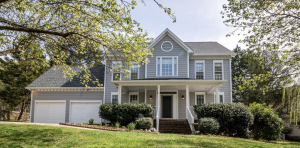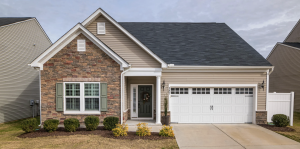Dealing with shared driveway problems works best when you take clear steps and keep good records. Start by checking your paperwork and local rules about shared driveways. Write down any problems that come up, talk with your neighbors regularly, and agree on who handles upkeep. If you and your neighbors disagree, working with a mediator often costs less than going to court. Getting advice from experts and keeping detailed notes helps everyone find a fair solution. Looking deeper into these methods shows more ways to settle driveway disputes smoothly.
Key Takeaways
- Document all incidents with dates, photos, and detailed descriptions to maintain a clear record of disputes and communications.
- Establish written agreements covering maintenance responsibilities, cost-sharing arrangements, and usage rules between all parties involved.
- Communicate openly with neighbors about concerns and hold regular meetings to address issues before they escalate into major conflicts.
- Consider mediation services as a cost-effective solution before pursuing legal action, as it promotes collaborative problem-solving.
- Familiarize yourself with local regulations, property rights, and HOA rules regarding shared driveways to understand your legal position.
Understanding Your Legal Rights and Responsibilities
Shared driveway problems usually start when people don’t know their rights and duties.
Owners need to check their house papers and sharing agreements to know what they can and can’t do. These papers spell out who takes care of what, who can use the driveway, and what they can use it for.
Owners must keep the driveway in good shape, clear away snow and trash, and make sure everyone who has permission can use it freely.
They also need to check their local rules about shared driveways, since cities and towns might have special rules.
When owners know their basic rights and duties, they’re less likely to fight and more likely to work well together.
Common Types of Shared Driveway Conflicts
Neighbors sharing driveways often run into several common problems. Many arguments start when someone parks incorrectly, either blocking the way or taking up too many spaces.
People also clash over who should handle basic upkeep, like clearing snow or fixing damage, and how to split these costs.
Problems pop up when neighbors have different daily schedules, especially during busy times like morning drives to work or evening returns home.
Fights break out over how the driveway can be used, such as where guests can park, whether work trucks can stay there, or where to put things like boats or bikes.
Neighbors sometimes argue about property lines when someone uses more space than they should or changes the driveway without asking others first.
Documenting Driveway Issues and Incidents
If you share a driveway with others and run into problems, keeping good records is key to fixing issues and protecting your rights.
Write down every problem that happens – note the date, time, and what occurred. Include the names of people who saw it happen and anyone who was involved.
Take clear pictures to show proof of problems like wrong parking, damage to property, or blocked access.
Make sure your photos show the date and capture the issue from different sides.
Keep copies of any letters or emails between neighbors, records of repairs, and reports made to local authorities.
Store all these records in order by date, and save them both on a computer and as paper copies.
Establishing Clear Communication With Neighbors
Clear communication forms the foundation for preventing shared driveway conflicts through structured interactions between neighbors.
Scheduling regular update meetings, whether monthly or quarterly, creates dedicated time to address maintenance needs and usage concerns before they escalate into disputes.
Documenting all agreements in writing, including maintenance schedules and cost-sharing arrangements, provides a concrete reference point that helps avoid misunderstandings and establishes clear expectations for all parties.
Set Regular Update Meetings
Regular talks between neighbors help stop driveway problems before they grow bigger. Meeting often helps neighbors work out issues early and stay friendly with each other.
It’s best to meet every three months or every month, giving everyone a clear time to talk things through.
Main topics to talk about:
- When to fix things and how to split costs
- Plans for any changes that might affect the driveway
- Looking over old agreements and changing them if needed
These regular talks help keep things open and clear between neighbors. They also make sure everyone understands each other and keeps a record of what’s been decided about the shared driveway, helping neighbors work well together.
Put Agreements in Writing
Written driveway agreements help back up what neighbors discuss in their regular meetings.
Having things on paper gives everyone a clear way to check what was decided and stops confusion about who should do what.
The agreement needs to spell out when maintenance happens, how costs are split, and rules about parking.
Getting neighbors to look over and sign these papers together helps avoid problems. If disagreements come up later, having everything written down makes solving them easier since everyone can see what they agreed to.
To make sure nothing is missing, it’s smart to have a lawyer look over the agreement before everyone signs it.
Creating a Written Agreement for Shared Use
A thorough written agreement for a shared driveway serves as an essential legal foundation that establishes clear parameters for access rights and maintenance responsibilities between property owners.
The agreement should explicitly detail cost-sharing arrangements for repairs, snow removal, and other necessary upkeep to prevent future financial disputes.
Including specific usage restrictions, such as parking limitations and speed requirements, helps maintain orderly operations and reduces potential conflicts between sharing parties.
Define Access and Maintenance
Written agreements are essential when sharing a driveway, as they spell out who can use it and who takes care of it.
These written rules help everyone know what to expect and stop problems before they start by making everything clear.
The paperwork should cover:
- Who can use the driveway, when they can use it, where people can park, and rules about visitors
- Who handles upkeep tasks like clearing snow, fixing damage, repaving, and how costs are split
- Ways to solve disagreements, including steps to take when someone breaks the rules
Having everything in writing helps neighbors get along better and protects everyone’s rights and investment in the shared driveway.
Specify Cost-Sharing Terms
Cost sharing is a key part of any shared driveway deal, as it stops money fights and makes sure all owners pay their fair share of the costs.
When setting up cost sharing, owners need to write down exactly how much each person will pay for upkeep, fixes, and upgrades. They should spell out who pays what for regular work like clearing snow and fixing the surface, plus any emergency repairs.
The deal needs to say when payments are due, how to collect them, and what happens if someone doesn’t pay. Adding rules to check and change payment amounts from time to time keeps things fair as situations change.
Document Usage Restrictions
Written rules for sharing driveways need to spell out clearly what people can and cannot do. A written plan that shows how owners can use the driveway helps stop arguments by making the rules clear for everyone.
The written rules should cover:
- What kinds of cars can use it and how heavy they can be so the driveway stays in good shape.
- Where cars can park, both for regular use and short stops.
- When big trucks can come through for things like deliveries or building work.
These rules help neighbors share the driveway without problems by making it clear who can do what and when they can do it.
When everyone knows the rules, it’s easier to get along and keep the driveway working well for all owners.
Maintenance and Cost-Sharing Solutions
A clear maintenance and cost-sharing plan helps prevent fights over shared driveways. Property owners need to agree on who does what and when, like clearing snow, fixing problems, and keeping the driveway in good shape.
Each owner’s share of costs should match how much they use the driveway and their property size. Setting up a shared money pot makes it easier to handle surprise repairs and regular upkeep.
Neighbors can put money in monthly or yearly, so funds are ready when needed. A written plan should spell out how big decisions are made, like picking repair workers and settling arguments about what fixes come first or who pays what.
Mediation and Alternative Dispute Resolution
When neighbors can’t solve shared driveway problems by talking to each other, getting help from a mediator can work well. A mediator is someone who doesn’t take sides and helps people work out their problems together in a structured way that keeps neighbors on friendly terms.
Mediation helps in three main ways:
- It costs much less than going to court
- It gets results more quickly than a lawsuit
- People have more say in the final solution than a judge would give them
During mediation, neighbors meet in private where they can speak freely about what bothers them, think up new ways to fix things, and write down agreements that both sides must follow.
This way often works better than fighting it out because both neighbors help create the solution, making them more likely to stick with it.
Working With Local Authorities and HOAS
Local officials and homeowners groups are key helpers in fixing shared driveway problems when talking to neighbors doesn’t work. It’s important for owners to know their local rules about shared driveways, including how land can be used, rights of way, and who must handle upkeep.
If you live where there’s a homeowners group, you must follow their rules about how to use driveways, where to park, and what to do when there are problems.
These groups can make people follow rules by charging fees or taking legal steps. When someone breaks the rules, owners should write down what happened, tell the right people about it, and keep copies of all messages.
City workers who check on rules can look into complaints and give out tickets to those who don’t follow them.
Legal Steps When Diplomacy Fails
Legal action should be the last step after trying to work things out peacefully in shared driveway conflicts.
Going to a mediator is a good way to solve problems while keeping neighbors on speaking terms and saving money. If working with a mediator doesn’t help, property owners might need to take their case to court.
- Submit your case to the court, with clear proof of problems and records showing you tried to fix things earlier.
- Hire a lawyer who knows about property rights and shared land issues.
- Ask the court to send a property expert to measure and mark exact boundaries and how the land can be used.
These steps help make sure the law is followed properly while protecting your rights and setting clear rules for the future.
Frequently Asked Questions
Can I Build a Gate Across a Shared Driveway?
You need permission from everyone who has the right to use the shared driveway before putting up a gate. Check your local rules and any legal limits on the driveway first, then make sure your building plans follow them.
What Happens to Shared Driveway Agreements When a Neighbor Sells Their Property?
When someone buys a house with a shared driveway, they must follow the same rules as the previous owner. The right to use the shared driveway stays with the property and becomes part of the new owner’s rights and duties, unless all neighbors agree to change it.
Are Security Cameras Allowed on Shared Driveways?
Security cameras on shared driveways need to follow local rules and respect others’ privacy. Let your neighbors know if you put up cameras, point them in the right direction, and make sure they don’t record areas that belong to other people.
Can Delivery Vehicles Block a Shared Driveway Temporarily?
Delivery trucks can briefly stop in shared driveways while making deliveries, but they must follow local rules and make sure other people can still use the driveway when needed.
Who Is Liable if Someone Gets Injured on a Shared Driveway?
Responsibility for injuries on shared driveways usually belongs to all homeowners who share upkeep duties. If someone gets hurt, the blame often depends on poor maintenance, dangerous conditions, or when owners fail to take care of the driveway.
Conclusion
Resolving shared driveway disputes requires a balanced approach between protecting legal rights and maintaining good relationships with neighbors. At Ace California Law, we’ve helped many clients navigate these complex situations. Through proper documentation, clear communication, and written agreements, most conflicts can be prevented or resolved peacefully. When casual talks don’t work, mediation offers a cheaper option than going to court. While we at Ace California Law always try to find peaceful solutions first, we understand that sometimes court action is needed to protect property rights and get binding decisions, especially when neighbors refuse to cooperate or violate existing agreements.






